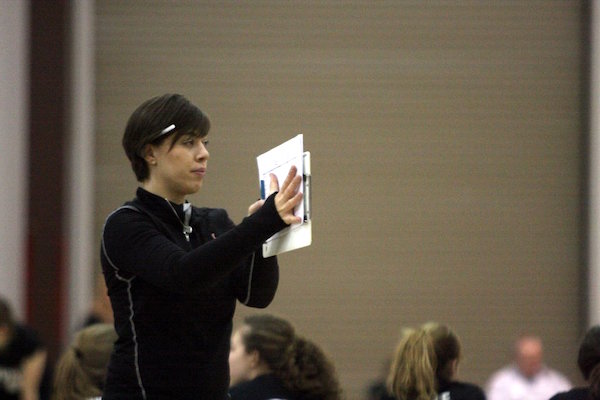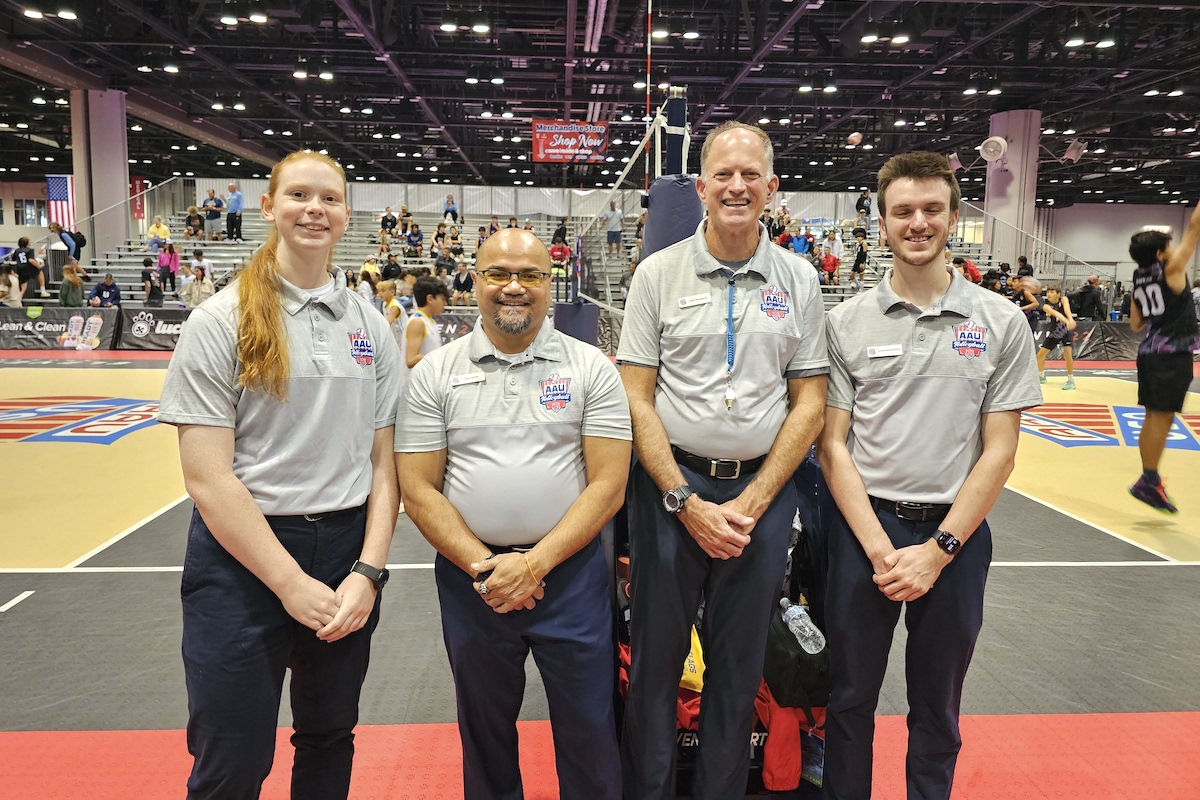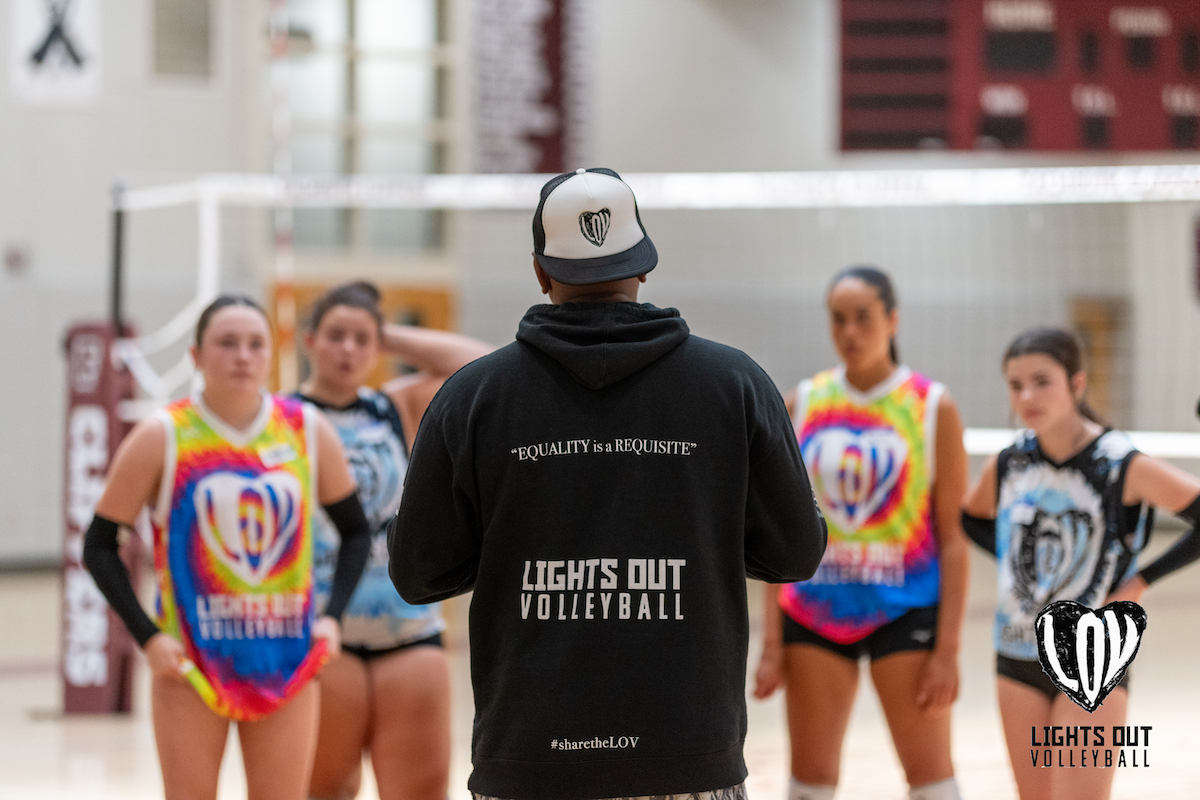GREAT coaches are leaving the coaching world. Not because they’re ready to retire after a long, polished career. GREAT coaches are quitting. GREAT coaches are being pushed out. GREAT coaches are realizing it’s unfortunately not all about the athletes.
It is vital that club and school administrators embrace their role to establish and maintain a healthy relationship between the coaches, the athletes and the parents.
Here are 4 ways to keep the GREAT volleyball coaches coaching:
1. Leadership comes from the top
The administration is responsible for setting the example for a positive culture and positive relationship between athletes, parents and coaches. The coach needs to trust that the Club Director/Athletic Director has his/her back. Support is shown by letting the coaches know they can come to you any time, and trust is built by following through.
Trevor Ragan, Founder of Train Ugly shares
“Leadership = modeling
If we want our people to try new things, we need to try new things.
If we want our people to own their mistakes and ask for feedback, we need to own our mistakes and ask for feedback.
If we want our people to be learners, we need to be learners.”
It is difficult for a program or a team to succeed without the administration’s support. The best administrations go to battle day in and day out to consistently communicate the club and program philosophy.
2. Stand Up to Adversity from Parents
It is important for the Club Director and Coach or Athletic Director and Coach to be on the same page and in agreement as far as coaching philosophy, culture, and conflict resolution.
“I was very fortunate in my 2nd high school position that our AD was very supportive. I invited him and he accepted to attend my pre-season parent/player meeting where we talked about playing time. This showed the parents that he supported my decisions from the get-go” shares JVA Executive Director Jenny Hahn of her experience coaching a high school team.
Many would argue that it is not the athletes who have changed it is the parents. During a recent JVA Webinar: Create a Winning Culture of Un-Entitlement From the Club Level to College and into Life presented by Penn State Head Women’s Coach Russ Rose and Munciana Co-Director Mike Lingenfelter, Mike made the point that the athletes are not much changed, it is the parents that have changed, and are instilling the sense of entitlement in their athletes.
Russ and Mike go on to discuss how they make it a point to not allow a “problem parent” or “problem athlete” into their programs. It drives the culture down and is a headache for everyone involved. Oftentimes Club Directors and High School or College Athletic Directors will side with the parents in order to prevent negative word of mouth or complaints taken to the local papers. The parents may have some political leverage and unfortunately use it for selfish reasons. It is the administration’s responsibility to try to resolve the conflict, or ultimately remove the negative parent that has not bought into the program’s philosophy.
“I am very honest and let everyone know immediately I am going to hold everyone accountable, starting with me” shares Lingenfelter. “Honesty and accountability have to be addressed early and often. I let everyone in our club know they are paying to train, not paying to play. Everyone gets equal training, but not equal playing time. People have trouble with that but that’s life. And we address it openly and honestly.”
3. Let the coach “Coach“
Give the coach the opportunity to build a program, establish culture and use his/her expertise. Expect the coach to do what is best for the team, not just one or two athletes on the team. Allow the coach to communicate with the athletes, build a relationship of trust with the athletes, and set expectations for each athlete and the team as a whole.
“My communication method is called a one-minute drill where I talk with every kid for one minute” adds Russ. “I let the athlete know what she is doing well, what she can improve on, what her role is going to be until our next meeting. Then I ask her if she has any questions. I do the same thing with my staff, and we meet several times throughout the season. I don’t care who plays, I care how we play. Everyone needs to know where they stand.“
Sometimes parents take the opportunity to openly express their disapproval of who is receiving playing time, the chosen line-up for a tournament, substitutions during a match, or when a time-out is taken. A coach would not tell the parent how to do his or her job, so why is it OK for the parent to do the same to a coach?
Parents will overstep their boundaries, and issues will quickly find their way to the administration. If the administration sides with the parent(s), it disqualifies the coach’s authority and shows that the parents have all of the power. It also dismisses any credit the coach has for establishing culture and empowering the athletes to earn their playing time. Unfortunately, many coaches feel they need to keep stats in order to justify playing time to parents. Stats should be used to validate growth in the athlete’s performance, or in some cases lack of growth.
4. Allow athletes to fail
It is the failures that allow the athletes to grow. It is the struggle that builds mental toughness.
Parents are afraid to let their athletes fail and struggle. However, the parents are the first building block to shaping the athlete’s mental toughness and sense of accountability for their actions. When parents see their child struggling or frustrated, many times they step in and try to quickly fix the problem, rather than give the athlete the opportunity to work through the problem on their own. When parents allow the athlete to take the easy road and fix their problems for them, it creates a sense of entitlement for the athlete, and sends the message that the athlete should not have to deal with adversity. That is far from real life.
Allowing the athlete the opportunity to overcome failure and do it on their own instills a sense of ownership and confidence that is a building block to mental toughness. It requires the parent to take a step back and watch the athlete potentially fail. It also requires the athlete to communicate for his/herself and feel comfortable going directly to the coach with questions or concerns. The athlete will be better for it in the long run. In the real world, a parent cannot write a letter to their child’s boss and expect the situation to get resolved.
Advice for Volleyball Coaches Facing Adversity
- Be proactive!
During the interview process, find out what the philosophy is of the administration/AD related to team selection, playing time, etc. Before accepting a position, have that conversation and clarify the process that the administration follows when they receive a parent complaint. - Over communicate.
Share your philosophy with your players and their families in your pre-season team meetings. Stay consisent with your philosophy and stick to your philosophy even when issues arise. If all that is done and a coach feels pressure or influence, review that conversation, explain the details that went into your decision(s) and ask for the administration’s support. If that is not forthcoming, leave. - Get parents involved with issues not related to volleyball.
Ultimately the parent is the expert on the child, they know what buttons to push and they know how their child is really doing. Show the parents you care about their child and want their child to be happy. If the athlete seems to be struggling mentally or emotionally, coaches can enlist the expert, the parent, to eradicate issue or help their athlete grow.Involve parents in team outings, meals, fundraising, and spirit wear. Make them feel like they are a part of the culture, without involving them in the gym. - Continue to learn and grow.
Our experiences shape who we are as teachers, as leaders, as mentors. Continue to embrace challenges and find ways to learn and grow from those challenges. Participate in webinars, attend clinics, read books and expand on your art of coaching.Younger Coaches: Learn from an experienced coach and seek advice when handling administration, player or parent issues.
Related reading on coaching volleyball. For related reading on volleyball club and team culture.
About the Author 
Briana Schunzel is the Director of Education and Partner Relations for the JVA, and has been a part of the staff since August of 2011. Bri enjoys interacting with passionate junior volleyball club directors and coaches on a daily basis, as well as building relationships with partners who share the same vision and goals of the JVA, and are all about giving back to the juniors. Bri has 12 years of coaching experience at the grade school level all the way through the college level. She was a four year starting setter at Ohio University from 2001 to 2004, where she garnered All-American and Conference Player of the Year honors. She then continued her career competing professionally in Paris, France.











